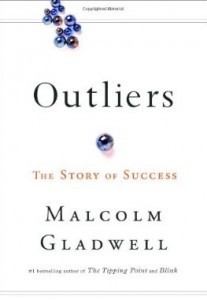Steven R. Southard's Blog, page 84
November 13, 2011
That's a Great Story!
What makes a story great, or even good? For this discussion I'll concentrate on short stories, my main medium, but the principles apply to all fiction. Fair warning: I'll explore the topic to the best of my ability, but if I was an expert on writing great short stories, I would be better known.
Philosophers since at least the ancient Greeks have puzzled about what makes one thing better or of greater value than another. Is it really all subjective, in the mind of each individual reader...
November 6, 2011
10 Reasons to Keep a Writer's Journal
From my lengthy "do as I say, not as I do" file comes this item–keeping a journal. I decided to blog about this topic to kick-start myself into restarting this important habit. So read on if you like, but this entry is meant to persuade me.
 Steve, I know you've kept journals in the past, but you've fallen out of the habit and out of practice. You're also now denying yourself a journal's many benefits. Yes, you kept secret "event"-type journals about each of your children's activities as...
Steve, I know you've kept journals in the past, but you've fallen out of the habit and out of practice. You're also now denying yourself a journal's many benefits. Yes, you kept secret "event"-type journals about each of your children's activities as...
October 30, 2011
Critique Group Arrangements, or Bringing Some Order to Chaos
Back in March, I discussed why you should consider joining (or forming) a critique group if you're an aspiring writer. I mentioned I'd blog about critique group arrangements and rules later, and this is my much-anticipated payment on half of that promise. I'll just talk about arrangements today.
I'll only address in-person groups that meet periodically, since those are the ones I'm familiar with. Online groups are wonderful, particularly for those who would otherwise have to drive a great...
October 23, 2011
Your Writer Infestation
Usually I dedicate my blog entries to beginning writers. Today I want to address those who put up with writers–spouses, children, parents, co-workers, and friends.
Before we discuss what to do about your writer infestation, let's explore how to recognize you have one. At first glance, this may seem difficult to determine. After all, writers look just like normal people, for the most part. Writers have a wide distribution, having been seen on every continent, in every country. They live w...
October 16, 2011
As You Know, Bob…
Perhaps your name isn't Bob, but this post could still be for you, if you're a beginning fiction writer. One of the difficult parts of writing is creating believable dialogue, and one of the easy traps to fall into is called As You Know, Bob, or AYKB.
It stems from the writer's need to convey information about the world of the story to readers who don't know it yet. Dialogue between story characters might seem like the perfect opportunity to convey the information, since dialogue stands out ...
October 9, 2011
Prose's Teacher, Poetry
Can reading or writing poetry improve your prose? I'll go with a yes on that.
First, allow me to give you my take on the differences. Let's consider Prose and Poetry as siblings, as brother and sister respectively, for they are related, both being offspring of language.
The sister, Poetry, keeps her work brief. Her words are densely packed, tiny packages brimming with meaning. She prides herself on juxtaposing words in a way to convey a clear impression without wasting syllables. For her, ...
October 2, 2011
What? I'm Supposed to Learn Structure, Too?
Yes, you should know about short story structure to be successful in selling your tales. Luckily, it's not difficult. To learn about structure, I mean. The actual writing of successful short stories takes some effort, but so does anything worthwhile.
Let's start with the basic structure of any story. This structure is true for novels, movies, plays, even comic books. We'll then see how the structure applies to short stories in particular.
1. The Hook. This is an opening section meant to ...
September 18, 2011
Pioneers and Giants
For this blog post I'm dividing the great writers into two categories–pioneers and giants. I define pioneers as those who start a new genre of fiction by themselves, and giants as those who come along later and take an existing genre to new heights and greater popularity.
Here is a table listing a few literary genres and some of the pioneers and giants in each one:
AdventureHeliodorus, HomerEdgar Rice Burroughs, Alexandre Dumas, Ian Fleming, H. Rider Haggard...
September 11, 2011
Writing and the Outlier Theory
 In a previous blog post, I mentioned Malcolm Gladwell and his book Outliers: The Story of Success. In it, he explored why some people seem to stand out as geniuses in their fields–what made them so good? His conclusion was that success requires two things: (1) Luck, and (2) 10,000 hours of practice.
In a previous blog post, I mentioned Malcolm Gladwell and his book Outliers: The Story of Success. In it, he explored why some people seem to stand out as geniuses in their fields–what made them so good? His conclusion was that success requires two things: (1) Luck, and (2) 10,000 hours of practice.
There's not much we can do about luck. Gladwell suggested it was a matter of being born at the right time and being exposed to the right influences. When it comes to luck, you either have it o...
September 4, 2011
To Retrieve a Lost Muse
I've written quite a bit about my muse–that creative alter ego of mine–but I've not written much about yours. You might be protesting, "But, Steve, I don't have a muse. I'm not a creative person." Well, it's my contention that we all were born creative and that many of us taught ourselves to be uncreative over time. However, we can teach ourselves to be creative again, regain the lost skill, and recover the abandoned muse.
 Were we really all born creative? Certainly we were born curious, ...
Were we really all born creative? Certainly we were born curious, ...



